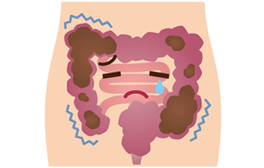
If you think heart attacks are just for men, think again. Heart attacks among women — young women in particular — are on the rise. Let’s get to the heart of the matter.
A recent study published by the American Heart Association, the authority on all things heart health, found that between 2010-2014, heart attacks in women between the ages of 35-54 went up 10%. Yikes!
It’s not easy to pinpoint why, but looking at two common myths is a good place to start.
Myth No. 1: Heart attacks are a man’s problem. That line of thinking often leads to women ignoring heart attack symptoms and being underdiagnosed and undertreated.
Myth No. 2: A woman’s heart attack risk is way lower before menopause. Because of this myth, women may not get screened early enough for heart disease risk factors. Consider this: 90% of women in the AHA study had controllable risk factors such as smoking, diabetes and high blood pressure.
Related Story
Her doctor called 911 when he didn't believe she would really go to the ER, and thankfully he did. Never in a million years did Susan Roberts think she would hear the words 'emergency double-bypass heart surgery.' She brushed off fatigue and shortness of breath as part of being a busy working mom. Women may experience other symptoms aside from chest pain, such as nausea, back or jaw pain.
Risky Business
It’s easy to ignore the warning signs of possible heart disease, especially when you’re busy working, juggling packed schedules, and caring for kids and aging parents. After all, couldn’t your high blood pressure be caused by stress or anxiety? Maybe. But … it’s worth checking into.
Here are the factors that can increase your chances of heart disease.
- Being overweight
- Eating a diet high in saturated fats and cholesterol
- Excessive alcohol use
- Family history of heart disease
- High blood cholesterol and/or blood pressure
- History of pre-eclampsia
- Long periods of sitting
- Tobacco use
- Unmanaged diabetes
But, wait. There’s some good news. You are in total control over many of these factors. (How often does that happen?) Eating healthier, moving more, losing weight, drinking less and living smoke-free are all under your command.
Of these lifestyle changes, moving more may be the one you want to tackle first. While it may feel as if you’re always on the go, the time you spend sitting during your commute, at work, and at your kids’ after-school activities adds up quickly. Sitting disease is a real thing, and it puts your heart health at great risk.
Getting just 30 minutes of moderate to vigorous exercise at least five days a week can reduce your heart disease risk by 30%-40% and your stroke risk by 25%. Totally doable, and totally worth it, right?
Take Symptoms to Heart
Every 90 seconds, a woman has a heart attack. If you think you or someone you know is having a heart attack, call 911 immediately. Treatment works best when it’s received within one hour of noticing symptoms.
- Cold sweats (not menopause hot flashes)
- Severe shortness of breath
- Sharp upper body pain in the neck, back and/or jaw
- Uncommon dizziness or light-headedness
- Unexplained nausea (feeling sick to the stomach) or vomiting
- Unusual or unexplained tiredness
- Unusually heavy pressure on the chest (you feel like there’s a ton of weight on you)
Put Your Heart Into It
Partnering with your healthcare provider can help keep your heart healthy. Knowing the answers to these questions pulled together by the Centers for Disease Control and Prevention will give you both a starting point.
- What is my risk for heart disease?
- What is my blood pressure? What does it mean, and what do I need to do about it?
- What are my cholesterol numbers? What do they mean, and what do I need to do about them?
- What is my body mass index and waist measurement? Is my BMI in the normal range? Do I need to lose weight?
- What is my blood sugar level? Am I at risk for diabetes?
- What other screening tests for heart disease do I need? How often should I return for checkups for my heart health?
- What can I do to quit smoking?
- How much physical activity do I need to help protect my heart?
- What is a heart-healthy eating plan for me? Should I see a registered dietitian?
- How can I tell if I’m having a heart attack?
Related Articles

November 7, 2024
10000 Steps Good Enough
How many steps did you log today? It’s a popular question, and the gold standard answer is 10,000. Yet, depending on your health goals, you may need to pick up the pace.

June 1, 2019
5 Day Meal Prep
Who says eating healthy has to be difficult? One of our Registered Dietitians shows us how easy it can be to prep lunches for a busy week.

June 1, 2019
5 Foods With Health Benefits
Dark ChocolateBoost your mood and your memory (think antioxidants) by savoring dark chocolate. It may also help your heart health. Just 1 oz. is all it takes...

December 9, 2019
5 Free Indulgences
Are you ready for the hubbub of the holidays? The season’s festivities are always fun, but they can also wear you down. If your holiday spirit needs rechargi...

June 1, 2019
5 Minutes to a Happier You
Feeling stressed, angry or anxious? Head to the great outdoors. A new study has found that a five-minute walk can work wonders for your mood.The more natural...

July 27, 2022
5 Must Have Nutrients
Vitamins and minerals do a body good, but who has time to figure out which foods offer what benefits? This short list of five essential nutrients, opens new ...


